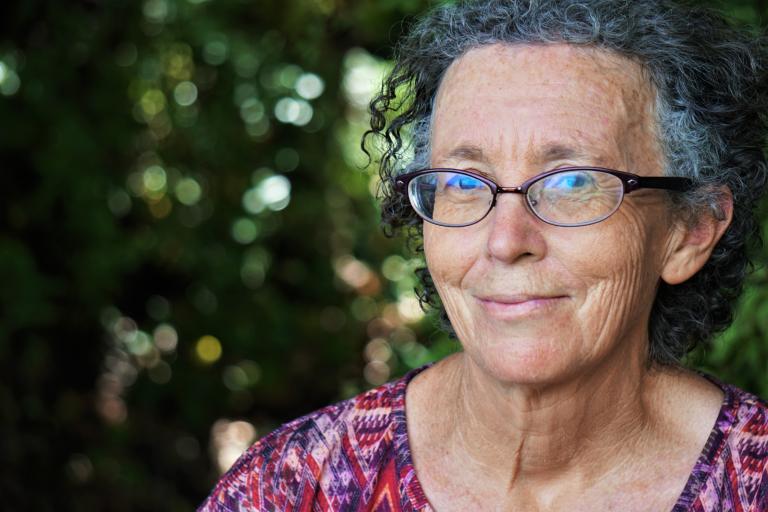
The American monk Thomas Merton once told a story about climbing the ladder of success. Merton pointed out that we can spend years of our lives climbing the corporate or economic ladder. Up and up and up. Only to find that when we get to the top of our ladder, it’s leaning against the wrong wall.
In Falling Upward, A Spirituality for the Two Halves of Life, Richard Rohr reminds us that our “supposed achievements” of the first half of life can often be found wanting. We may climb to the top of the proverbial ladder only to take in the view and discover that “there is nothing up there that either satisfies or endures.” (It’s something I found in my own career when I was about three-quarters of the way to the top—and decided to begin the slow descent back down.)
Yet, realizing we are on the wrong ladder often requires some serious discernment on our part. Too many people get caught up in what Rohr refers to as “the crab bucket.” You realize you’re not where you should be or want to be and try to get out, but those around you keep pulling you back in. They are in the crab bucket too and want you to stay with them because “it’s what everyone else is doing.”
At some point, you realize there is more to life than climbing the ladder.
Rohr believes that life can be split up into two parts. During the first half of life, we “build a strong container or identity.” This is the part of life where our egos are often dominant. We want to make a name for ourselves and become what society calls “a success,” focusing on our jobs, our relationships, our security.
During the second half of life, the trappings of success begin to lose their importance. We realize it is more important to meet and feed the needs of the soul. The ego begins to subside and we set out to find the contents that the container was meant to hold. We slow our climb up the ladder or get off it altogether.
The only issue? Once we get off the ladder, we often think our work is done. Rohr writes that “the first task invests so much of our blood and sweat, eggs and sperm, tears and years that we often cannot imagine that there is a second task, or that anymore is expected of us.” We can choose to ignore the calling of the second half of life or “we can set out from the known and the familiar to take on a further journey.”
As we move on to the further journey of life, we become more in tune with “the underlying flow behind the everyday events.” Rohr tells us that this deeper discovery is largely what religious people mean by “finding their soul.” We begin moving to “another intensity, a deeper communion” with life.
8 Insights of a Spiritually Mature Person
Have you moved on to the second half of life? Are you doing it with spiritual awareness? Here are 8 insights I culled from Falling Upward that may serve as a gauge as to where you are on your spiritual journey. The words below are mostly Rohr’s, with his exact language in quotes. I have paraphrased some of his other thoughts.
- You become less preoccupied with collecting more material goods. “Your efforts are now to cleanse your life of whatever is unnecessary and pay back, give back to the world a bit of what you have received. Your concern is not to have what you love—but to love what you have. Hoarding, collecting, and impressing others with your things, your house, your travels, are of less and less importance.”
- You start becoming fully and consciously who you already are. You begin living with what Rohr calls “beginner’s mind” looking at the world around you with less judgment and greater openness. It’s more “about unlearning than learning.”
- You return to simplicity after learning from all the complexity. “Simple meaning now suffices and that becomes in itself a much deeper happiness. As the body cannot live without food, so the soul cannot live without meaning.” You find this meaning in “pure friendship, useless beauty, or moments of communion with nature or anything.”
- You learn to ignore and withdraw your energy from stupid things rather than fight them. “We tend to become a mirror image of anything we fight too long or directly. We rely more on prayer and discernment than knee-jerk responses.” You begin to lose interest in idolizing people and events. They matter less and less.
- You become more accepting—of yourself. You realize that you have both strengths and weaknesses—and they no longer cancel each other out. “There is no longer a persona to protect or project. You finally are who you are, and can be who you are, without disguise or fear.”
- You place an emphasis on fruitfulness, not success. This idea comes not from Rohr, but from the Reverend Donald Marks of New Jersey. He points out that we don’t so much want a successful life, we want a fruitful life. We want to be of service to those around us exhibiting traits like patience, kindness, generosity and love.
- You dig a little deeper into the things you love.“If you go to the depths of anything, you will begin to knock upon something substantial, real, and with a timeless quality to it.” You take the activities you love, be it gardening or cooking or spiritual reading, and dig a little deeper becoming even more passionate about them. “Finding deep meaning in our experiences is not just another name for spirituality but is also the very shape of human happiness.”
- You start to pass on what you have learned. You no longer keep the important lessons you’ve learned in life to yourself, you begin passing them on. You share your wisdom so that it will live on in others.













